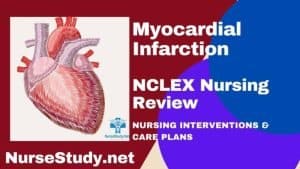Pericarditis Nursing Diagnosis and Care Plan
Pericarditis is the inflammation of the pericardium, the protective, double-layered sac that surrounds the heart. This condition causes sharp, pleuritic chest pain that often radiates to the neck, shoulders, or back and is typically relieved when the patient leans forward. For nurses, recognizing pericarditis is crucial because early intervention can relieve pain, prevent complications, and … See Nursing Diagnoses




